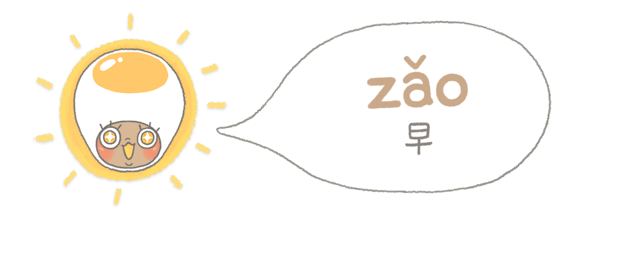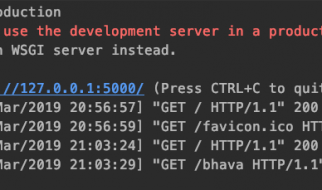4 Insider Greeting Tips You Must Know!
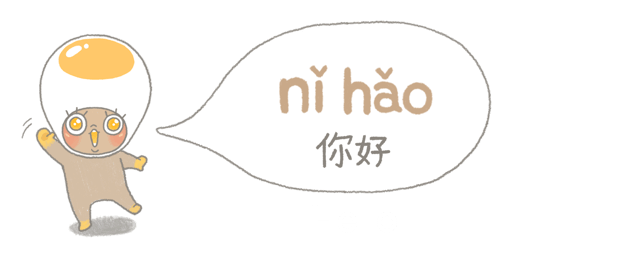 Eggbun Chat to Learn Chinese teaches how to say hello in Chinese in different contexts
Eggbun Chat to Learn Chinese teaches how to say hello in Chinese in different contexts
Chinese people say ?n? h?o? when meeting someone (especially foreigner) for the first time , answering the phone and writing a letter. For Chinese people, ?n? h?o? seems a little bit too formal and creates a distance.
Let?s learn 4 insider greeting tips!
1) N? h?o (??) vs. Nn h?o (??)
Nn (?, you) is the polite form of n? (?, you). Instead of saying ?n? h?o? (??, hello), one should say ?nn h?o? (??, hello) (formal and polite) when meeting a respectable elderly for the first time.
Tips: Most of the Chinese honorifics are no longer used after Cultural Revolution, especially in the spoken form*. Nowadays, nn (?, you) is probably the most commonly used Chinese honorifics.
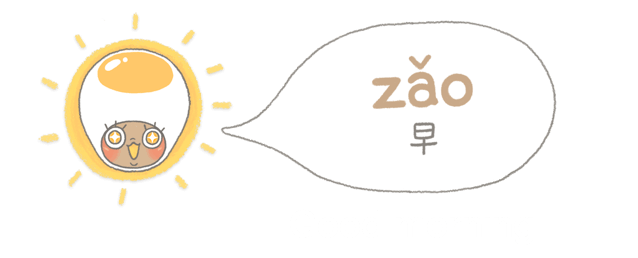 ?Z?o? (?, morning) is the short form of ?z?o ?n? (??, good morning)
?Z?o? (?, morning) is the short form of ?z?o ?n? (??, good morning)
2) Use greetings associated with time of the day!
The most common morning greeting is ?z?o ?n? (??, good morning). It is a fixed expression, which literally means ?morning peace?. However, there are more variations of ?z?o ?n? than you can ever imagine. For example, ?z?o? (?, morning) is the short form of ?z?o ?n? and adding ??? (?) or ?ya? (?) after ?z?o? makes it sound more casual.
Tips: Unlike morning greetings, xiw? h?o (???, good afternoon), w???n (??, good afternoon), bngw?n h?o (???, good evening) or w?nshng h?o (???, good evening) are more frequently used in a formal setting.
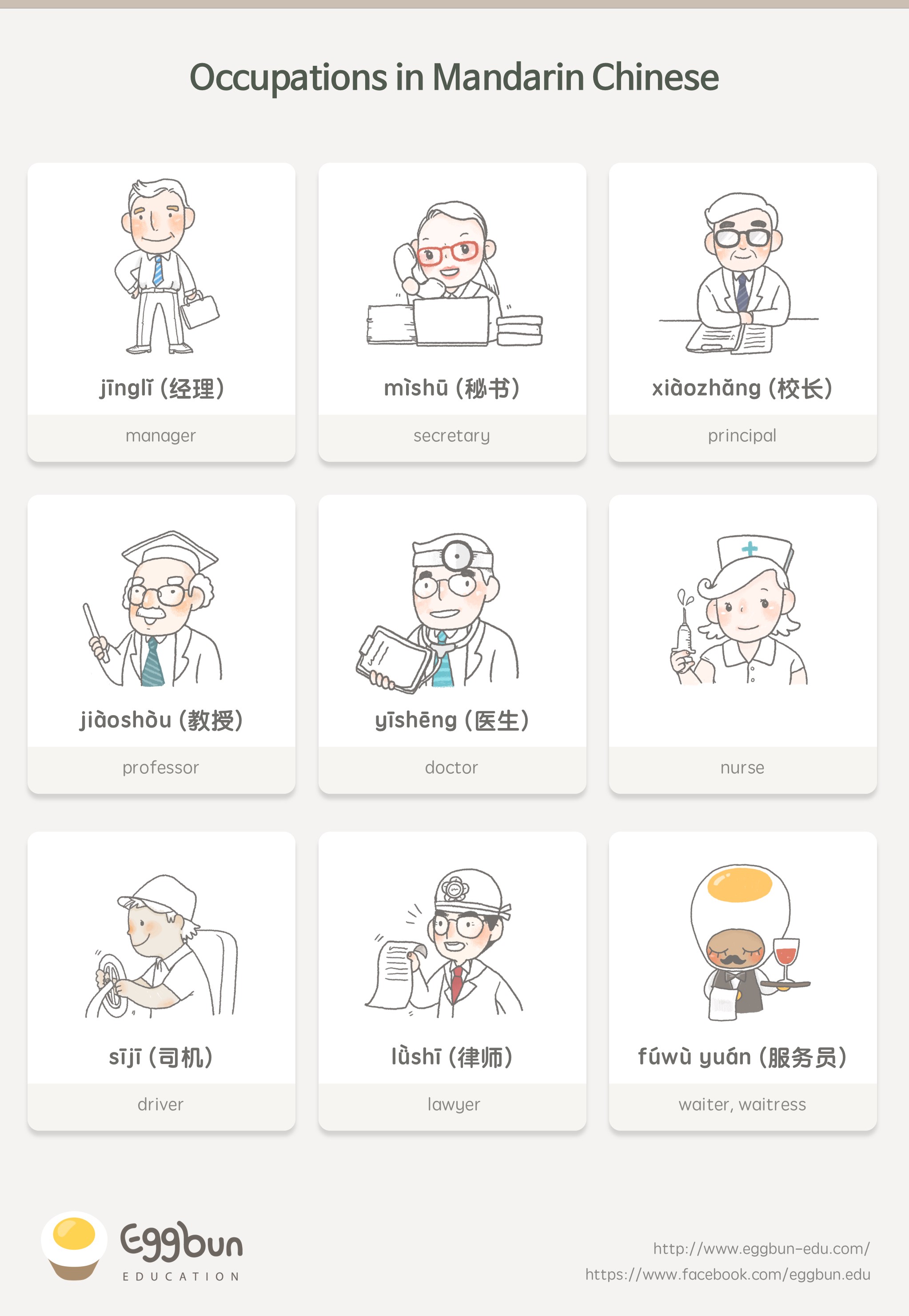 Professional tittles are also forms of greetings in Chinese!
Professional tittles are also forms of greetings in Chinese!
3) Say their names/nicknames/titles/kinship terms!
In Chinese culture, it?s very common to greet others by making eye contact and address them by names, nicknames, titles or kinship terms. Since addressing one?s full Chinese names is way too formal, friends and colleagues often call one another just by xng (?, surname) or mng (?, given name). To make it sound more casual, Chinese people even combine a xng (?) and a nickname prefix to make a nickname. L?o (?, old), xi?o (?, small), d (?, big) and ? (?) are fairly common nickname markers added in front of xng (?).
Look at the following conversation extracted from Chat to Learn Chinese app:
General Director Li brushes past Manager Wang in the company:
Manager Wang: L? z?ng h?o! (???!, How are you, General (Director) Li!)
General (Director) Li: Wng j?ngl?! (???!, Manager Wang!)
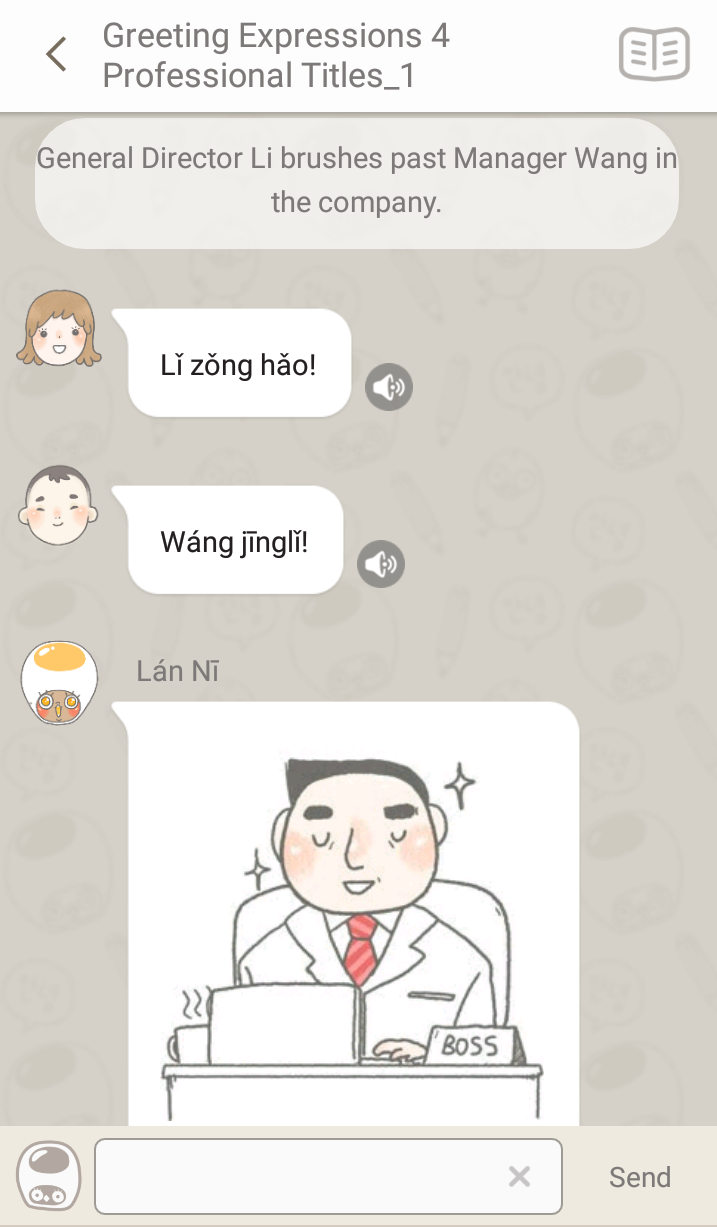 Screenshot of Eggbun Chat to Learn Chinese
Screenshot of Eggbun Chat to Learn Chinese
Tips: Names, gender specific titles, professional titles and kinship terms themselves are forms of greetings, which can be used alone to greet Chinese people.
4) Greet like a Chinese by referring to the current activities!
?N? ch? le miy?u?? (??????, Have you eaten yet?) is probably the most frequently used Chinese greeting. Close friends may even ask ?Q n??? (???, Where are you going?), ?Gnm ne?? (????, What are you doing?) or ?Mng shnme ne? (?????, What are you busy with?). Some Chinese greetings might seem quite nosy from non-Chinese perspective, but it is not a harass, it is more like showing care and concern. Just take those questions as a conversation starter. Do NOT try to tell every single detail.
Tips: Chinese people also greet by ?telling? others about what has just happened, e.g. ?Ch?q le.? (????, (I?m) going out.) and ?Huli le.? (????, (I?m) back.)
Now, you have learned how to greet like a Chinese by using time of the day, names, titles, nicknames or talking about current activities. For audios and more details on insider greeting tips, please download Chat to Learn Chinese app on Google Play Store or IOS App Store.
* References: https://en.wikipedia.org/wiki/Chinese_honorifics
Do you like this article? Leave a comment!
